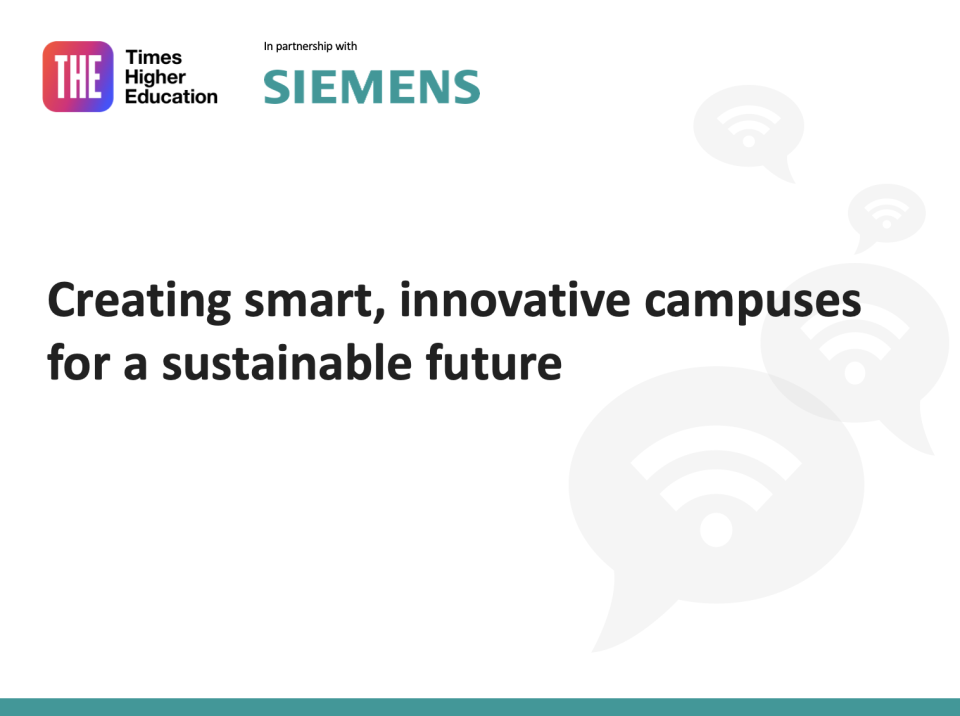Digital transformation is a strategic priority for many universities looking to leverage smart infrastructure to drive operational excellence and meet sustainability and decarbonisation goals. A panel of experts at a Times Higher Education webinar, held in partnership with Siemens, explored the importance of technology and innovative campus design in promoting sustainability in the higher education sector.
Firas Aldroubi, head of the higher education vertical for the Middle East at Siemens, spoke about the significance of taking a holistic look at net zero and energy performance on campus. “Implementing an optimal design for a new campus and making it future-ready is an important task,” Aldroubi said.
Siemens has successfully partnered with institutions around the world, such as the University of East London (UEL) in the UK and the American University of Sharjah (AUS) in the United Arab Emirates, to advance sustainability goals in higher education.
Hassan Abdalla, vice-president of UEL, said the university aims to achieve its net zero goal by 2030 and has made sustainability central to its operations. “We aim to equip our talent pipeline with the right skills and competencies to be able to lead the green agenda worldwide,” he said. UEL has partnered with Siemens to introduce new ways to achieve net zero through projects such as an Internet of Things living lab and a water source heat pump to optimise energy consumption and reduce carbon emissions using smart technologies.
A key requirement for successfully implementing innovative projects is engagement, said Ali Alsuwaidi, acting vice-chancellor of the American University of Sharjah. “Building awareness of the importance of sustainability and climate action among students, staff and external stakeholders is a fundamental element in advancing sustainability,” he said.
Academic-industry partnerships also help to create a talent pipeline that addresses industry skills shortages while boosting graduate success. “We get access to the brightest minds from all corners of the earth [through partnerships],” said Simon Burgess, head of sales and solution development at Siemens. “We’re able to make our organisation as diverse as it can be so that we can operate with excellence.”
Siemens also offers students from its partner universities access to internship programmes and learning opportunities in areas such as energy, digitalisation and sustainability. By leveraging their experience working on practical solutions, graduates with in-demand skills are better positioned to secure jobs that help them make a meaningful impact. “That’s where the students see a great opportunity to make a difference to their society – locally, nationally and globally,” said Abdalla.
Embedding sustainability into curricula and allowing students from all disciplines to test sustainability initiatives is vital, said Alsuwaidi. “We want people to graduate with the sustainability mentality – a culture of preserving resources and looking at the future in a better way by embedding sustainability into what they do,” he concluded.
The panel:
- Hassan Abdalla, vice-president, University of East London
- Firas Aldroubi, head of higher education vertical (Middle East), Siemens
- Ali Alsuwaidi, acting vice-chancellor, American University of Sharjah
- Simon Burgess, head of sales and solution development, Siemens
Find out more about Siemens.


comment